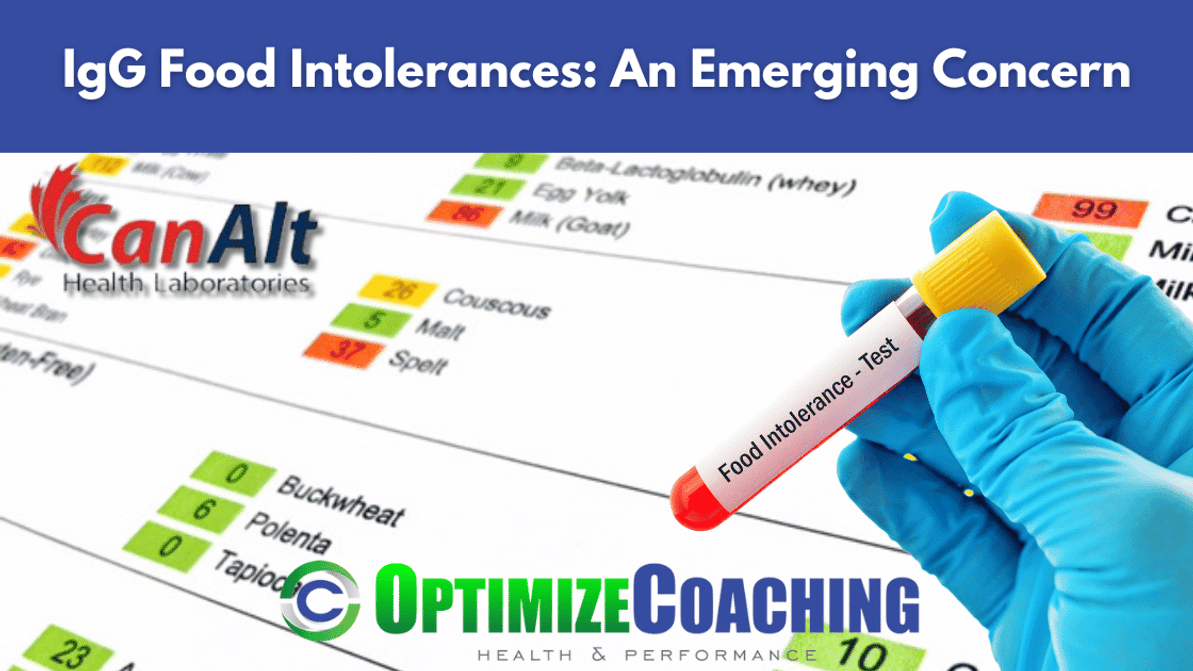IgG Food Intolerances: An Emerging Concern
There is growing evidence that food-specific IgG antibodies can be linked to many chronic health conditions. It is normal for our bodies' defense systems to produce some levels of IgG antibodies to specific foods. These antibodies combine with the proteins of these foods to form complexes, which can cross the intestinal wall and enter the bloodstream. When the immune system functions well, these complexes are removed by macrophages. However, if there is an overload or a weakened immune system, these complexes can circulate in the bloodstream and deposit in different tissues, leading to inflammation.
Conditions Linked to Raised Levels of Food IgG Antibodies
Numerous diseases and conditions have been linked to elevated levels of food IgG antibodies, including:
- Irritable Bowel Syndrome (IBS)
- Inflammatory Conditions, Arthritis
- Migraines, Headaches
- Asthma, Respiratory Issues
- Bloating, Gas, Constipation, Diarrhea
- Chronic Tiredness, General Malaise
- Rashes, Eczema
- Obesity
The Testing Process
CanAlt employs a strict control process to ensure the quality of foods used for testing, eliminating any contamination risks. The food antigens are applied to a nitrocellulose pad for testing, followed by a series of steps involving reagents that result in the development of a fluorescent color proportionate to the amount of IgG antibodies present. Each food is tested in duplicate, and each patient test is run with known standards and controls, providing confidence in the accuracy of the results.
CanAlt's IgG Food Intolerance Test
CanAlt’s IgG food intolerance test is a valuable tool that eliminates guesswork and helps patients achieve a better quality of life. The test uses microarray-based ELISA technology to measure IgG antibody levels to over 200 different foods. The panel includes common food intolerance triggers such as dairy, eggs, wheat, soybean, and nuts, as well as foods that might not be suspected, such as cola nut, rice, sunflower, and sesame seeds.
The Importance of Food Intolerance Testing
Food intolerances that are immune-related result in the production of IgG antibodies. Symptoms are usually not as severe as allergies and may not appear for several days. This kind of immune response often goes undiagnosed, causing many people to live with underlying health conditions without understanding the cause.
Food Allergy vs. Food Intolerance
It is crucial to differentiate between food allergies and food intolerances. A food allergy is an immune reaction that results in the production of IgE antibodies. These reactions are usually immediate, with symptoms ranging from rashes, swelling, violent sickness, difficulty breathing, to anaphylactic shock. In contrast, food intolerances related to IgG antibodies are typically less severe and may take longer to manifest.
Take Control of Your Health with CanAlt
By identifying and addressing food intolerances through CanAlt’s IgG food intolerance test, you can take control of your health and mitigate chronic symptoms that impact your quality of life. Whether you're dealing with digestive issues, respiratory problems, or skin conditions, understanding your body’s response to certain foods can be a game-changer.
Explore your options when finding out what may be impacting your health, we're here to help! Does this sound like something that may help you in your health journey? Reach out to us for a free consult to find out more: https://optimizecoaching.ca/contact-us/
Recent Posts
-
Beat the Winter Blues: A Nutritionist’s Guide to Managing Seasonal Affective Disorder Naturally
As the days get shorter and temperatures drop, many people notice changes in mood, energy, sleep, an …Dec 12, 2025 -
Back to School: Sharpen Focus, Energize Learning
As the school season kicks off, it’s the perfect time to set students up for success—not just with s …Sep 02, 2025 -
Is Apple Cider Vinegar Really Good for You?
Exploring the Benefits of ACV (Featuring Filsingers Organic Apple Cider Vinegar & Suku Vitamins Appl …Jul 18, 2025




